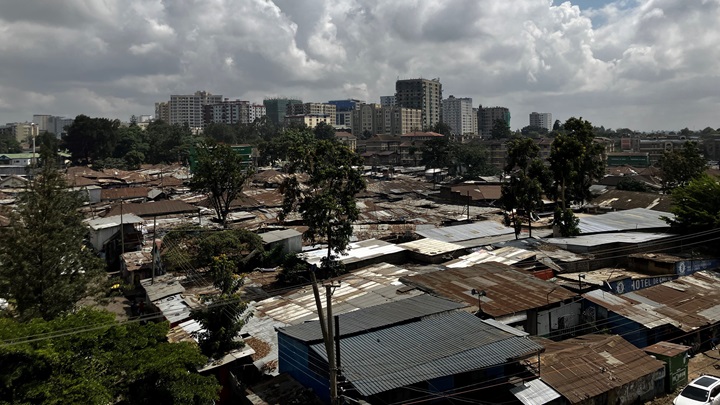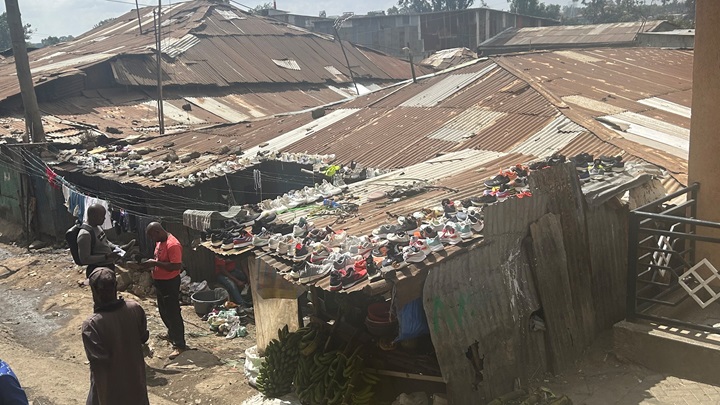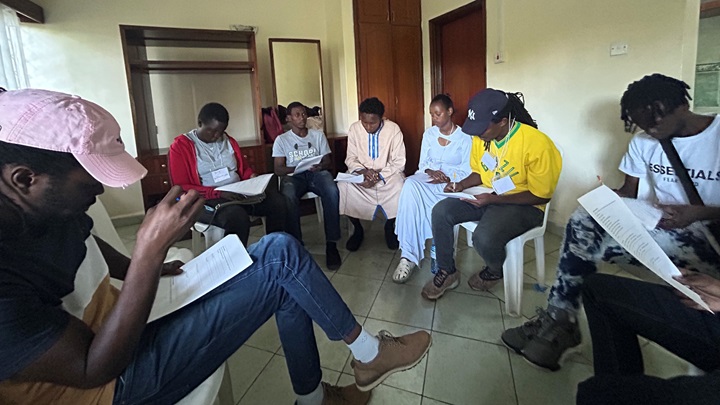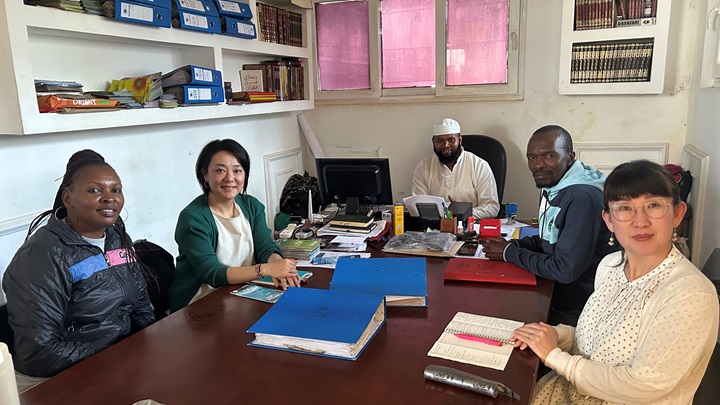Field Study on Slum-dwelling Youths in Kenya by Research Fellow Arai and Research Officer Imai
2025.06.30
Between Feb. 8 and 12, 2025, Arai Makiko , Research Fellow, and Imai Natsuko , Research Officer, JICA Ogata Sadako Research Institute for Peace and Development (JICA Ogata Research Institute), conducted a field study in Nairobi as part of the research project “Youths in Nairobi Slums: Socio-economic Isolation, Discrimination and the Impact of Intergroup Income-Generating Activities .”
In Nairobi, the capital of Kenya, there are multiple slums. These are informal settlements, formed by people without formal occupancy rights. Area-wise, they account for only a few percent of the city but are said to be home to more than a million people. The unemployment rate is high in these slums and social issues such as poverty, poor sanitation, inadequate education, crime and violence are prevalent. In addition, there have been news reports on cases of youths who live there facing discrimination by Nairobi residents or becoming targets of police violence.

A slum in Nairobi, the capital of Kenya

A wide range of social and economic challenges exist here
This research project will look at the social challenges faced by slum-dwelling youths from multiple perspectives and examine how the following influence their economic and social status: i) the relationship between these challenges and the risk of youths turning to crimes or extremism; and ii) income-generation opportunities and interaction between different groups. Arai will conduct analyses from the perspective of the sociology of law, with a focus on discrimination and legal consciousness. Imai’s study, on the other hand, will focus on the development of young people’s ability to proactively make decisions and take actions for their own lives and society, that is, their agency.
While in Nairobi, Arai conducted a questionnaire survey and a focus group discussion to gather detailed information about the discrimination and injustice experienced by young people living in slums. Results suggested that their experience may be influencing their legal consciousness, that is, how they perceive law and justice, what expectations they have on them and what makes them lose hope in these. Furthermore, many participants pointed out during the discussion that among slum dwellers, young males are particularly likely to be accused of committing crimes and targeted by police violence, revealing gender-based differences in experience and perception.

Focus group discussion with young slum dwellers
Imai held a focus group discussion with young slum dwellers, focusing on youth isolation, youth resilience and youth agency. She also interviewed representatives of a government agency called the National Youth Council as well as leaders of youth organizations that were established by young people with the aim of supporting local communities. Slum-dwelling youths face complex issues including high unemployment rates, widespread drug abuse, lack of financial support and the absence of representatives who can convey their voices in public decision-making arenas. Nevertheless, the interviews revealed that these youths are developing stronger connections with their peers by participating in community-based activities, thereby enhancing self-esteem.

Arai (second from left) and Imai (far right) in a meeting with leaders of a mosque
Arai and Imai will conduct further field studies and share the progress of their work at relevant academic conferences.
In parallel with the qualitative research led by Arai and Imai, a team of development economics scholars is conducting quantitative research using randomized controlled trials (RCTs) in this research project. The approach to analyze the same research subject using different methods is relatively new for the JICA Ogata Research Institute and is expected to lead to outcomes that leverage the strengths and expertise of multiple academic fields.

事業事前評価表(地球規模課題対応国際科学技術協力(SATREPS)).国際協力機構 地球環境部 . 防災第一チーム. 1.案件名.国 名: フィリピン共和国.

事業事前評価表(地球規模課題対応国際科学技術協力(SATREPS)).国際協力機構 地球環境部 . 防災第一チーム. 1.案件名.国 名: フィリピン共和国.

事業事前評価表(地球規模課題対応国際科学技術協力(SATREPS)).国際協力機構 地球環境部 . 防災第一チーム. 1.案件名.国 名: フィリピン共和国.

事業事前評価表(地球規模課題対応国際科学技術協力(SATREPS)).国際協力機構 地球環境部 . 防災第一チーム. 1.案件名.国 名: フィリピン共和国.

事業事前評価表(地球規模課題対応国際科学技術協力(SATREPS)).国際協力機構 地球環境部 . 防災第一チーム. 1.案件名.国 名: フィリピン共和国.
scroll